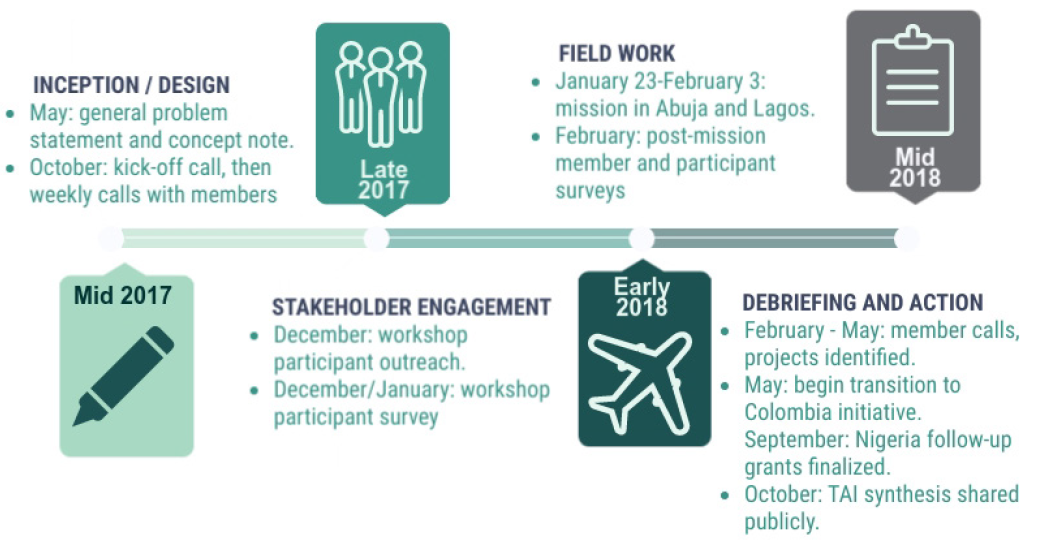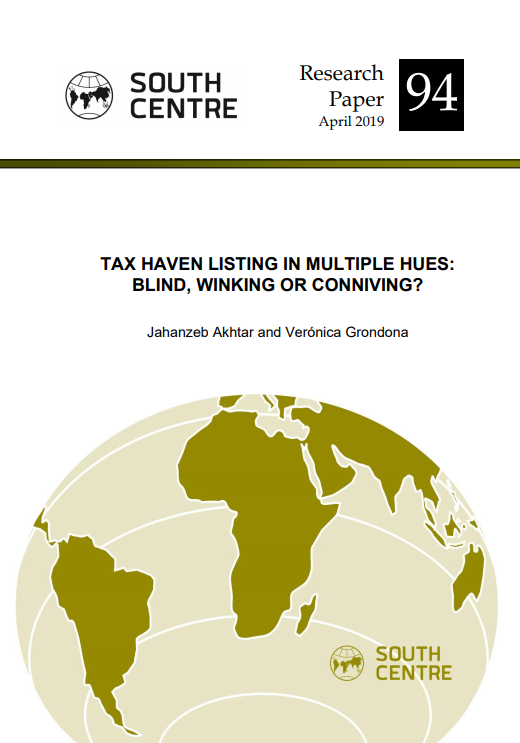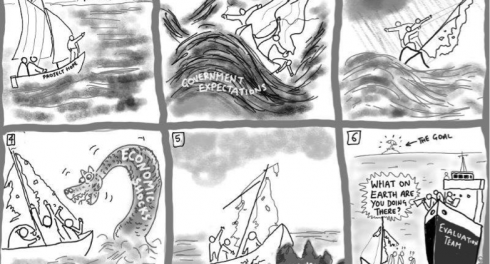Highlights:
- Laughing all the way to the mariyinsky palace
- County bean counting
- Window Cleaning
- On a road to tax minimization
- Automating investigation
- Unity in Social Movements
- Rethinking theories of change (keep reading!)
- TAI spotlight: data use for accountability collaboration case note to good governance Tbilisi style
In case you missed it…
Laughing all the way to the Mariyinsky Palace

Photo: 123RF
We’ve mentioned in past Weeklies how comedy has become a useful tool of good governance campaigners – helping skewer the corruption and abuse of power. Are we to see a trend now of standup as a stepping stone to office? We’ve seen how clown and comedian Beppe Grillo helped help decisively influence recent Italian politics, but Ukraine’s Volodymyr Zelensky’s election win brings a comedian to the top job. Playing a fictional president on TV, Zelensky called out a corrupt, self-serving elite and laid out a more utopian vision. We’ll soon find out how fiction translates into reality.
It will be interesting to see how Ukraine’s membership in the Open Government Partnership evolves, even though it might be too soon to expect changes before OGP’s summit in Ottawa. In the lead up to Ottawa, Nathaniel Heller points to some lessons and observations gleaned in the preparations: “Shrinking” civic space is neither permanent, predictable…or easily affected by civil society actors alone. Is a terrible OGP National Action Plan (NAP) better than no NAP? Heller emphasizes that “citizens” still matter and the OGP Local Program is really, really important.
County bean counting
Sticking with local importance, how transparent is your local government with regard to how it raises and spends public resources? The International Budget Partnership has released a Kenyan county budget transparency study. Results reveal a gradual improvement in the number of budget documents that counties are publishing on their websites. But there are challenges around the publication of budget implementation reports.
Meanwhile, in Papua New Guinea, the country’s fiscal crisis has seen severe budget cuts for public service delivery. New research by Grant Walton draws on interviews with 136 public servants in Papua New Guinea and finds “…even women who found out about corruption and understood reporting processes were less likely to report than their male counterparts. In turn, there is a role for governments and donors to provide gender-sensitive pathways for reporting corruption.” Walton goes on to emphasize that anti-corruption reformers will need to move ‘isi isi’ (slowly/carefully) to ensure their cure is no worse than the disease.
Elsewhere, a new report from AidData suggests the provision of location-specific data to public officials can improve resource allocation and service delivery outcomes, especially when the information that public officials receive is legible, actionable, and inclusive of both aid flows and population needs.
Window cleaning
Turning to transparency of aid flows, Charles Kenny at Centre for Global Development supports U.S. Rep. Maxine Waters’ call for greater transparency in the World Bank IDA Private Sector Window (PSW). The PSW aims to assist private sector development in fragile states, and this call could allow the PSW to live up to the Multilateral Development Bank Principles to support sustainable private sector operations.
Few sectors get as much private sector investment as the extractives industry, so it is encouraging to see Ghana looking to move beyond Extractive Industry Transparency Initiative reports to promote transparency of companies and government agencies. Neighboring Nigeria launched a new online platform on extractives data to help increase transparency and accountability – hopefully, they read our report on barriers to data use in Nigeria while designing it. Read the accompanying collaboration case note highlighting member collaboration in the process in the TAI Spotlight. Such thoughts will be top of mind on the TAI team this week as we partner with the International Finance Corporation to hear different stakeholder views of barriers to use of extractives data in Colombia.
Long Read
A new report from the South Centre compares and analyzes the efforts by various international organization to identify and compile lists of tax havens.
On a road to tax minimization
This past weekend at least one of the TAI team were driving up the U.S. East Coast and passed by Wilmington, Delaware, wondering who on earth stops there. Answer? Lots and lots of companies (at least on paper). Quartz reporter Max de Haldevang reveals the US is the kingpin of global tax havens. Forget about Ireland, Singapore, Switzerland, and the Netherlands. He analyses three US states—Nevada, Wyoming, and, of course, Delaware —that have become America’s worst tax havens.
In a previous weekly, we highlighted how the Kenyan High Court nullified a 2012 tax treaty between the country and Mauritius. However, now they have signed a new tax treaty. The new treaty isn’t public yet, so we’ll have to wait and see what changed. Perhaps countries can avoid similar problems in the future if they heed words from the UN Under-Secretary-General for Economic and Social Affairs, Liu Zhenmin, who is calling for a more inclusive international tax architecture.
Keen to see an increase in domestic resource mobilization (DRM)? Effective DRM requires taxpayers, and if citizens have no morale to pay tax, then domestic resources won’t be mobilized. OECD is inviting public comments on a consultation on tax morale. Let your views be heard!
Money laundering is driving the housing crisis in Canada, making it hard for ordinary working people to afford a home. How to stop it? A petition is gathering steam urging a national policy to deal with the problem. What of combating money laundering within financial institutions? Matthew Long makes the case of how new systems promise to save financial institutions billions of dollars but will need better data to provide reliable results. However, it’s encouraging to see Panama papers’ investigations recover $1.1 billion in three years. Check out the amounts recovered in each country so far in U.S. dollars.
Automating investigation
Speaking of the Panama Papers, could the journalists have reaped more benefit from machines? Can we teach computers to recognize money laundering? Marina Walker Guevara observes that indeed, AI could help find unforeseen patterns and anticipate events in ways that would be impossible for investigators to do on their own. She further argues that the bigger question might be how we democratize those AI technologies and fully integrate them into the investigative reporting process in newsrooms of all sizes? One way is through partnerships with universities. Any other ideas?
Maybe we might have to start with ensuring that AI is ethical before we trust it with these big investigations. But Daniel Susser is already warning us that ethical reflection is helpful but necessarily limited and that we need new laws to place hard constraints on how AI is used and policy to drive more flexible external oversight. Or join OpenAI co-founders Greg Brockman and Ilya Sutskever who are discovering and enacting the path to safe artificial general intelligence — an AI that has human-like problem-solving abilities across many different domains. How will we navigate through the risks? They say we must think about the human factor and the technological factor. Worth remembering that machines can become biased regardless of the human factor. AI Now reveal the challenges of ensuring diversity in the new technology.
Unity in social movements
Are there ways to unite diverse social movements for a common cause? Tom Crompton lays out the case on how values-based campaigns can be a good starting point at Open Global Rights. “Human rights and other movements can better work together by identifying and working to strengthen shared values like social justice, equality, and love.”
Getting our own taste of the potential of unity (or at least constructive dialogue), TAI joined our first Purpose Power Town Hall last week. The methodology is focused on bringing people together locally to make meaningful connections and based on Purpose Power: How Mission-Driven Leaders Engage for Change. We were left wondering how the self-selecting attendance will drive change.
Essential listening
 As a collaborative, we are always looking for insight on what makes for successful collaboration, but learning from ants and Wikipedia? Katherine Maher, the executive director of the Wikimedia Foundation and Clint Penick, an ant researcher, explain all on the Play Well With Others podcast. Listen Now!
As a collaborative, we are always looking for insight on what makes for successful collaboration, but learning from ants and Wikipedia? Katherine Maher, the executive director of the Wikimedia Foundation and Clint Penick, an ant researcher, explain all on the Play Well With Others podcast. Listen Now!
Rethinking theories of change (keep reading!)
TAI team and members joined an interactive dialogue hosted by 3IE and the World Bank Group’s Independent Evaluation Group around evaluative evidence about engaging citizens and fostering accountable governance. Among the highlights: the need for more diversity in contexts where citizen engagement and accountability, and rethinking theories of change that are considered by evaluations.
Are you in the fiscal transparency field? Thinking of strategic ways to learn and work adaptively towards fiscal justice and accountability? Oxfam America, the Natural Resource Governance Institute, and the International Budget Partnership make a case for theories of change, action, and organizational learning. They further emphasize the value of collaboration and for a learning community to facilitate the exchange of ideas and practices. Additionally, they explain the value and necessity of building relationships among planning, monitoring, evaluation, and learning practitioners that allow for honest conversations.
Finally, thinking of ways to scale your online learning for non-profits? Want to make sure you achieve the reach and impact you need? Download Extension Engine’s white paper to learn the four stages of an effective online learning program. The paper explains where most organizations get stuck, the advantages of a custom learning experience and how technology breaks down barriers to learning.
TAI spotlight
Data Use for Accountability in Nigeria: Collaboration Case Note | TAI
We describe our efforts to understand how data is used to fight corruption in Nigeria, the barriers faced by different actors in these efforts, and how best to support these efforts.

Tackling the indicator gap | TAI
Megan Colnar, OSF, Suvarna Hulawale, IBP, and Alison Miranda, TAI discuss how to address the gaps in measuring fiscal governance indicators and an exciting new project by Results for Development which aims to assess these gaps and design and implement new or improved indicators.
Supporting good governance for Georgia | Luminate
Olena Boytsun highlights why they funded the Institute for Development of Freedom of Information in its work on increasing public oversight and supporting transparency and accountability of the Georgian government.
CSOs coming together to protect EU whistleblowers | Open Society Foundations
Peter Matjasic details how coordinated action from CSOs and support from European citizens led to EU directive for whistleblowers.
Turning the tide, together | Ford Foundation
A look at Ford Foundation’s progress in making grantmaking, operations and the broader philanthropic field fully inclusive of the rights of disabled people.
Calls: Proposals, papers, speakers and course invites
- ARC Crowdsourcing Cases of Sandwich Strategies – April 30
- Public Consultation: Review of the 2009 OECD Anti-Bribery Recommendation – April 30
- Fostering Latin America’s Next Generation of Feminist Leaders – May 3
- Young Feminist Leaders Fellowships: Open Society Foundations: May 3
- Fostering Latin America’s Next Generation of Feminist Leaders – May 3
- Open Society Foundation Call for Consultant: Anti-corruption Narratives – May 8
- 2019 Call for projects for Paris Peace Forum – May 13
- Call for Papers: The Global Asset Registry Workshop – May 15
- Call for Abstracts: MIT GOV/LAB 4th Political Behavior of Development Conference – May 15
- 4th Global Call for Proposals for CSOs and CSO Networks – May 15
On the calendar
- Emerging Frontiers of Extractive Industry Transparency: Procurement and Sub-Contracting – April 24, 2019 (Washington, DC)
- Human Centered Design with DemTools – April 24, 2019 (Washington, DC)
- Global Launch of the National Oil Company Database – April 25, 2019 (Washington, DC)
- World Press Freedom Day 2019 – May 1-3, 2019 (Addis Ababa, Ethiopia)
- The CEP Conference – May 7-9, 2019 (Minneapolis, USA)
- Csv, conf, v4 – May 8-9, 2019 (Eliot Centre, Portland)
- 2019 Forum to Advance Women’s Leadership in the Global Development Sector – May 14, 2019 (Washington, DC)
- Collective Impact Forum Convening – May 14-16, 2019 (Chicago, USA)
- Policy Dialogue Day 2019 – May 22, 2019 (Gothenburg, Sweden)
- The 2019 Media Impact Forum: Radio Active Culture – May 23, 2019 (Philadelphia, USA)
- 2019 Open Government Partnership Global Summit – May 29-31, 2019 (Ottawa, Canada)
- Women Deliver 2019 Conference – June 3- 6, 2019 (Vancouver, Canada)
- RightsCon Tunis – June 11-14, 2019 (Tunis, Tunisia)
- InterAction Forum 2019 – June 11-13, 2019 (Washington, DC)
- Global Conference on Transparency Research – June 26 – 27, 2019 (Rio de Janeiro, Brazil)
- Tax Justice Network Conference 2019 – July 2 -3, 2019 (City, University of London, UK)
- ATI/ITC Tax and Development Conference 2019 – July 2 -4, 2019 (Berlin, Germany)
- Global Symposium (COPGS) on Citizenship, Governance, and Accountability in Health – October 15-18, 2019 (New Delhi, India)
 Tax haven listing in multiple hues: Blind, winking or conniving? By Jahanzeb Akhtar and Verónica Grondona
Tax haven listing in multiple hues: Blind, winking or conniving? By Jahanzeb Akhtar and Verónica Grondona

